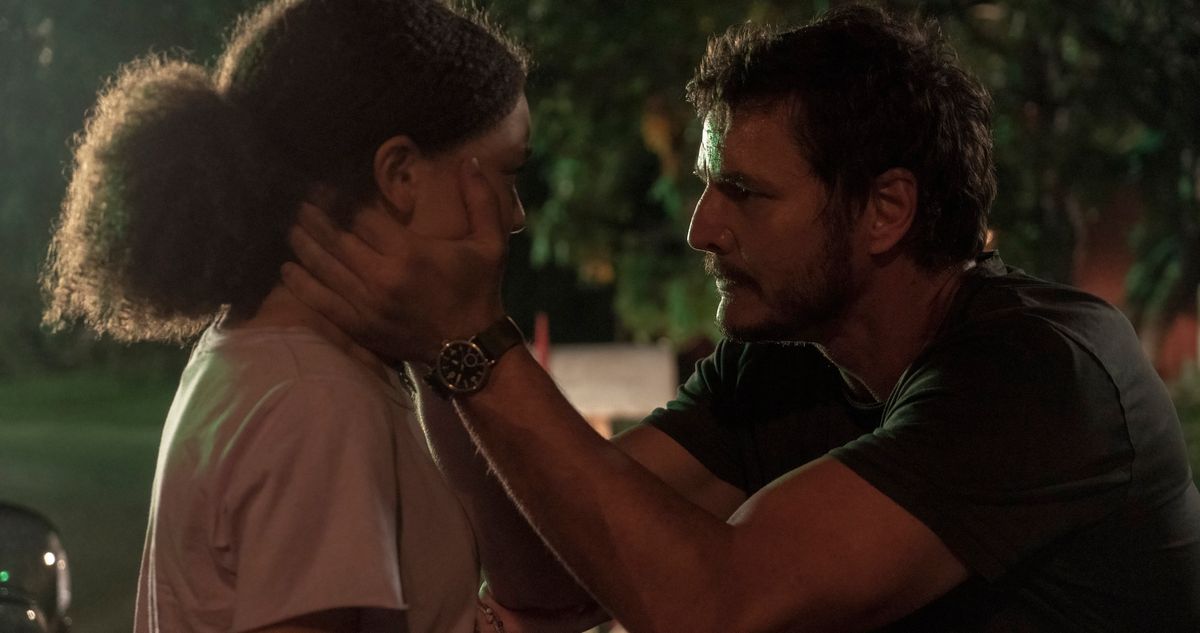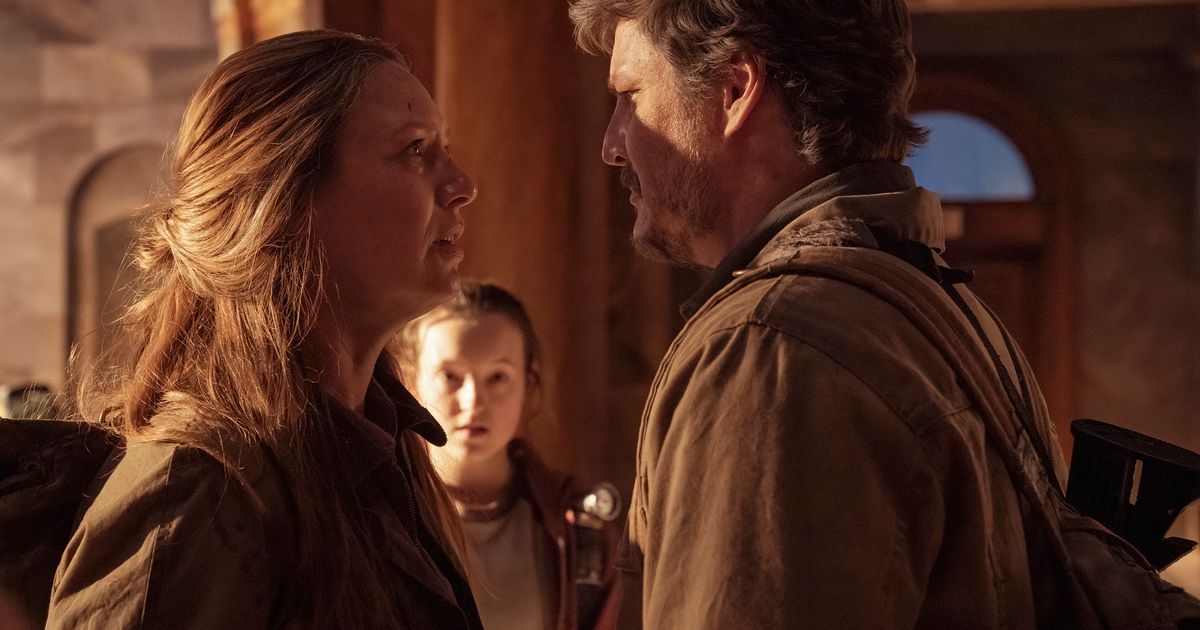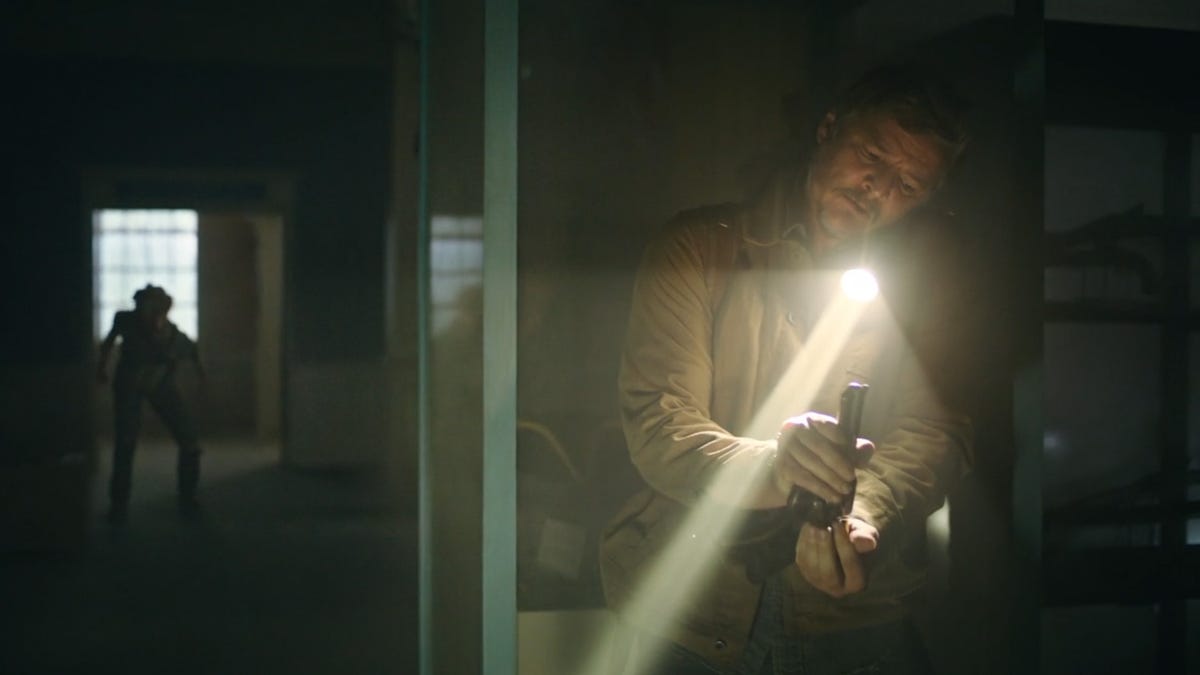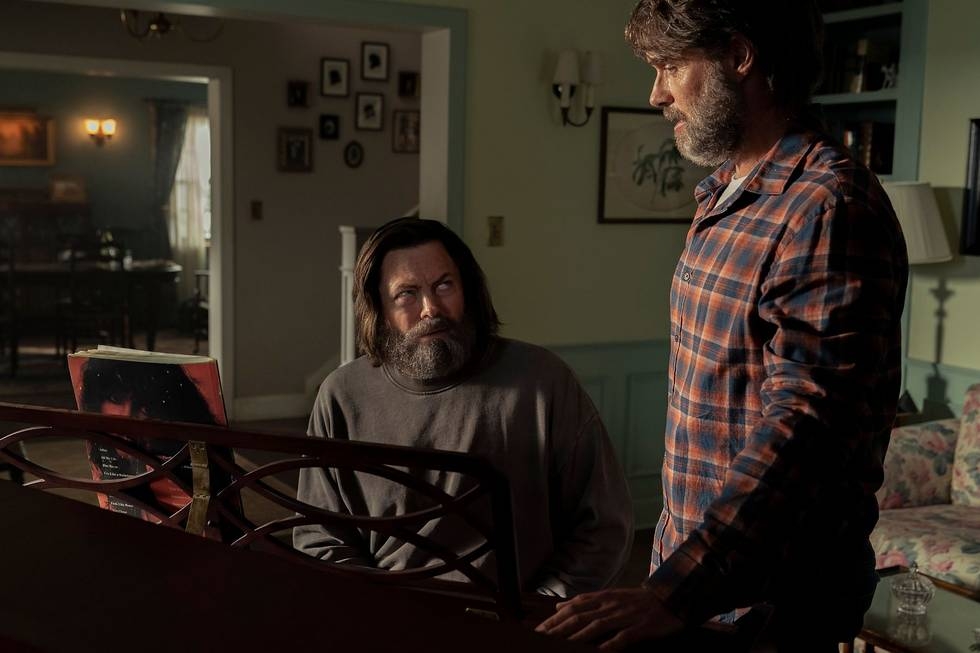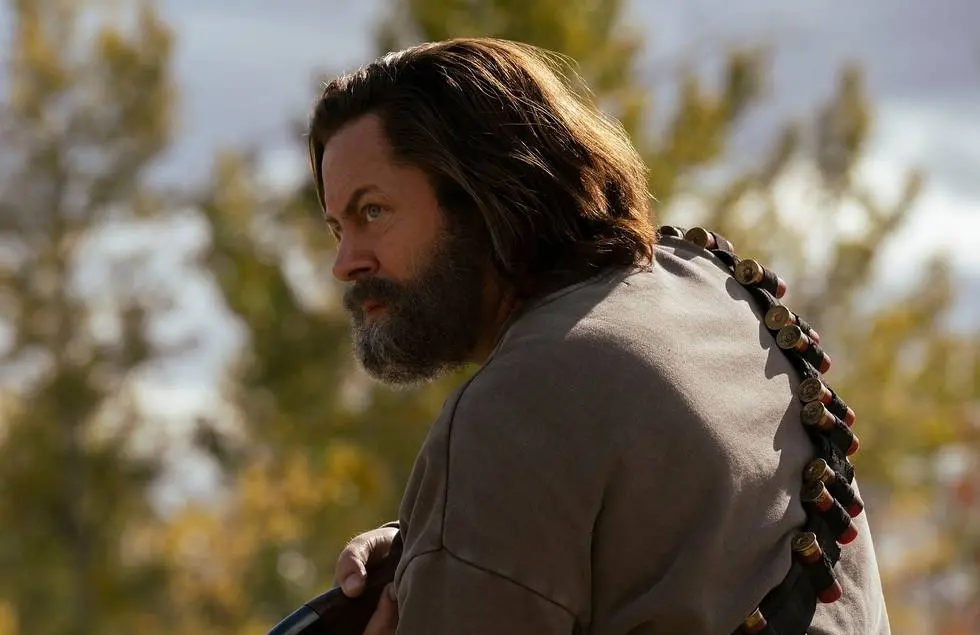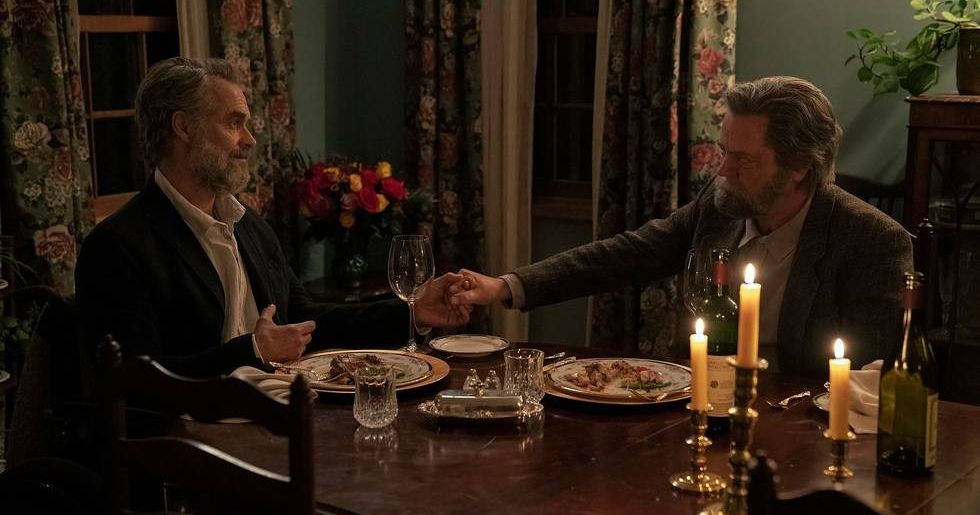- Books on TV
- Posts
- Visions of the future: human decisions & video games
Visions of the future: human decisions & video games

Trying a different format with the link embedding—is this better than the text links? Let me know at @trundlings or at [email protected]!
For book & TV folks: skip ahead to 35:48 for the interview with Cory Doctorow, writer and special advisor to the Electronic Frontier Foundation; the whole conversation is incredibly worthwhile in understanding the current landscape and the evolving economics of "content." At 48:23, Doctorow and Scott Galloway discuss the stakes of AI with a particularly unique perspective on copyright. (More on AI later today).
Sophie Vershbow, formerly a social media strategist for PRH, describes the unique breadth of utility Twitter offered to authors and publishers as a platform, from sourcing manuscripts to marketing books. It's the best deep dive into how folks of a particular industry have been able to network and evolve how work is done that I've read so far.
Is Comixology on the path to closing? It hosts more than 230,000 comics, graphic novels, and manga, and would be one of the largest platforms of DRM-protected content to fold if so. It's part of a larger wave of reductions across Amazon's portfolio of books-related investments, including Books group cuts last November, and hiring freezes at Goodreads and Audible.
This is part of an executive exodus from the publisher, following Markus Dohle stepping down as chief executive of PRH in December 2022 and Random House president Gina Centrello announcing her retirement last month.
HuffPo senior front page editor Philip Lewis spoke to Dr. Haki R. Madhubuti of Third World Press and Paul Coates of Black Classic Press about the difficult landscape for Black publishers, many of which started up half a decade ago to center and support Black authors and communities.

This author with a common name and an uncommon eye for talent landed a plum role a few years ago, but not without making a few waves. The publisher who hired him said all the things to concerned staffers but, obviously, made the hire anyway.
Have you heard about the infamous close up of an elephant taking a dump in Babylon? A similar was just one of the concerns for this politically-minded TV show as the logistics were sorted out for a key art shoot, and the final image turned out to be more Photoshop than farm.




I think folks in both publishing and TV development know acutely that the recent brouhahas happening over the idea of artificial intelligence supplanting human work is just... not going to happen. There are too many iterations, too many notes, too many adjustments, and too many other things happening to futz around with algorithms developed by Silicon Valley dudebros to replace other humans. Teaching a man to fish is decidedly not the same as teaching a machine how to write.
Recent controversies around AI-generated art for book covers, not AI-generated art for book covers, and debates about new standards and the impact on production have me thinking about the costs of promotional graphics, especially as I'm wrapping up collecting key arts and covers for February 2023 releases. Not having any or enough visual imagery to promote a project is a pickle I've found myself brining in time and time again, for reasons ranging from racism to rapacity, and there's no one solution to this perpetual problem.
What can you do, then, if you need more to market your book or TV show? This is corny as hell and probably not directly helpful to you, but you do your best. You do what's best for the product, for the story, and for the people, in whatever capacity that you have power to do so. Money is often the answer to most of these situations, but it's not always the best thing to throw cash at a problem—this example, from James Andrew Miller's oral history Tinderbox: HBO's Ruthless Pursuit of New Frontiers, is a story I just can't stop thinking about:
Angels [in America] was a watershed moment for HBO. Mike [Fuchs, CEO] came in with big ideas. He wanted to hire the esteemed photographer Richard Avedon to shoot the cast, and even went so far as having an image of what that should look like. We spent over $1 million on this shoot. When eh eventually saw it, he decided, "No, not what I want. We're going to go with a screenshot of Emma as the angel, hovering over the bed," which ended up being a better ad and a more iconic image. The idea that a million-dollar photo shoot from Richard Avedon would never see the light of day was indicative of the lengths HBO would go to appease our talent. Cost was not a factor.
From being in some of those conference rooms, I can also tell you of some of the lengths HBO went to to appease talent and turn them away from their worst impulses. And from working with many other networks and publishers, most places don't necessarily allow for talent/author input anyway, so real tough cookie no matter what.
Which is why I circle back to the you part of your best. It might be that all you can do is write an email with your two cents. It might be going through every production still and every scrap of footage for raw material, or going into Canva to slap a graphic together. It might be saying nothing and trusting that your team can do their jobs and do their jobs well, and acknowledging their work with a hearty thanks.
Man, what I wouldn't give to see those Avedon photos. The Annie Liebovitz shoot for Vogue, for the 2018 Broadway revival, is a masterpiece (as was the show).

Are you watching The Last of Us? I’ve never been the biggest fan of zombie or sickness shows, but the pop culture machine can sometimes be very obvious with its machinations and it’s decidedly demanding for attention to be paid to the latest blockbuster genre drama. Some of this is very clever programming scheduling—do you remember the absolute glut of incredible TV that started rolling out in late March and April of last year? No? Exactly. The Last of Us will end its first 9-episode season right as everyone else begins their Emmy campaigning, and HBO will get to spread around the good regards towards its Sunday 9p time slot to position Succession as its dramatic series priority.

From a creative standpoint, The Last of Us happens to be an adaptation, of the celebrated video game 2013 video game; as with book adaptations, it’s always good to study what evolved in the transmogrification. What often happens, particularly when authors are involved in the adaptation process, is that the strengths of the book story become weaknesses in television: the wrong subplots are expanded, the most intriguing characters and relationships get excised, the universe does not fit the number of episodes or minutes that the writers have to tell the story. etc.
It can be such a complex project, and studying good and bad examples is why this newsletter even exists, because I can’t stop thinking about the topic. And reading about it. And listening to other folks have conversations about it. So here’s some of the best of what I’ve consumed so far, and if you’ve seen anything on the topic that you find enriching, please send it along! I’m looking forward to continue to think about this too much over the next few weeks.
Vulture is absolutely killing it with their coverage on this beat, my default has been to just read everything they’re putting out. Some early season pieces that really stand out as good starting places include Jen Chaney's review, which paints a clear picture of the show overall, and highlights some key differences and overlaps to pay attention to.
And, respectively, Nicholas Quah dissects the game and TV show openings, allowing for a closer look at the elements that really draw a player or viewer into a narrative, and Roxana Hadadi discusses the show in context of the “zombie” genre, even though the story isn’t technically about zombies, and then breaks down how small detail changes in one specific scene in the second episode intensify the audience reaction.
The Ringer is, after Vulture, the second online destination I go to for written pop culture insights and the first for aural analysis. I really enjoyed Andy Greenwald discussing on The Watch being able to see some of the video game seams in the first few episodes, the laying of narrative “track,” and the illusion of choice in narrative-based video games.
Mallory Rubin and Joanna Robinson do double-duty in covering the show for The Prestige TV Podcast and then educating the masses on recurring genre elements; this one is great to just better understand the development of traveling and protection in storytelling.*
More from The Ringer: I appreciate Ben Lindbergh’s very accessible style of video game coverage, which always indicates well-versed insight but sidesteps any sneering towards the unlearned; as a mixed experience neophyte of video gaming, I learn what’s critical to know, a little of his unique insight, and can access even more on video games if I click on a few links in-set in his articles. It’s great.
Also swell is this expansive overview of many video game adaptations across TV and movies, and the isolation of which elements allowed The Last of Us to be strategically positioned for success from the start. There are a lot of starting points for a project to get off the ground, most of which often have less to do with a story and more to do with name recognition and brand awareness, and Lindbergh highlights not only those initial narrative strengths of the source material, but also the personnel decisions to take it to screen.
Alternately, Claire Jackson's deep dive for Kotaku into the specific play and detailed minutiae of the actions one takes in the video game challenges the idea of whether or not the adaptation is a success. It definitely is, but I appreciate how this is very much a dedicated gamer's perspective on agency and the game part of it all.
Victoria Ritvo argues for Slate that television cannot match a game's interaction, but spotlights the strengths of Episode 3 in using alternative means for the same effects. I also don't quite agree with this, but appreciate how one can go full-circle in the reading and how great shows can often produce so much great analysis from across the Internet.
A lot more specifically on Episode 3: anticipation for this particular hour was what convinced me I needed to watch this show, and style and culture writers Tom Fitzgerald and Lorenzo Marquez's analysis of the episode—as a long-time married pair themselves—highlights some of the most moving elements of the storytelling and performances.
I just really enjoyed as well this reflection from the actors Nick Offerman and Murray Bartlett on their showcase episode:
And this conversation with Neil Druckmann (creator of the game, co-showrunner) and Craig Maizin (co-showrunner) covers the creative process from assessing the moment in the game to expanding and evolving into the finalized episode. While it might very well seem like I'm consuming everything under the sun TLOU, the one thing I'm actively avoiding at the current moment is HBO's official The Last of Us podcast, which was recorded after production of but before the release of the show. Pre-recorded podcast conversations often take place in a bit of a vacuum and I find the in-season interviews with showrunners and writers to be more thoughtful and reflective in addressing not only their original creative intent, but also in responding to audience or critic feedback. (Listening to the Lovecraft Country podcast in time with the show's release back in 2020 soured the experience even before it all went off the rails).
There's also always has to be a contrarian take, if only just for the SEO. I was taken aback by the declaratory headline of Juan Barquin's piece for Primetimer, but its excoriation of the episode's narrative changes in context with what happens in the second game is great food for thought. I don't think I entirely agree with their arguments—the TLo take reinforces my belief that there's an adequate realism foundational to the characters—but I'm intrigued by their comparison of Bill's character to Ellie, rather than how most other critics and writers (and the show itself) drew the more direct parallel from Bill to Joel.
Riley MacLeod articulates a little more clearly, I think, what Barquin argues about some beats of the Bill & Frank story feeling a little too familiar in the canon of gay storytelling. Like Barquin, MacLeod muses about the presentation (or lack thereof) of Ellie's perspective in how the show tells the story versus the games.
Jackson McHenry, like MacLeod, articulates similar points to Barquin but better, drawing more from the TV canon of reference in his critique of the episode. After reading these three articles, I'm no longer quite as swept away by the hour—but have, I think, a much greater appreciation for the moment, that this episode exists and that there can be such a richness in both the text and context
And finally, since we’re still in the early part of the season, this last article recommendation might be getting ahead of ourselves. If you don’t mind spoilers, this 2013 discussion between Senior Reviewer Danielle Riendeau and Editor-at-Large Chris Plante is a great reflection on interaction, storytelling, perspective, and decision-making.
With their insights and observations in mind, I feel more equipped to think critically about the upcoming episodes without having played the game; this can absolutely be bookmarked for later if you’d rather not know how the game ends. A full decade has passed since publication and a sequel was released in 2020, so this is a great reference to understand how fans felt at the end of the initial release and play of the first game.
*Lone Wolf and Cub:
Lone Wolf and Cub happens to be the name of the iconic 1970-1976 manga series from writer Kazuo Koike and artist Goseki Kojima; it was then adapted into 6 films starring Tomisaburo Wakayama, four plays, 2 television series, a video game, and a board game. It was first released in America in the late ‘80s and featured special covers by Western artists including Frank Miller, Bill Sinkiewicz, Matt Wagner, and more; the series was of great influence, in particular, to Miller as evidenced in his Sin City and Ronin series. Other major works inspired by the series include Max Allan Collins’ graphic novel and novel Road to Perdition, which then became the basis for the 2002 Tom Hanks-led film and the wonderful Bob’s Burgers episode “Hawk & Chick.” Filmmakers including David Aranofsky and Justin Lin have tried to adapt the series for Hollywood in recent years; as of 2016, the rights belong to Steven Paul’s SP International pictures.
For further analysis of “Lone Wolf and Cub” adaptations from book to screen, I’d look to The Road and The Passage. The former is the Pulitzer Prize-winning 2006 novel by Cormac McCarthy and was adapted into a generally-lauded film in 2009 starring Viggo Mortensen and Kodi Smit-McPhee. The latter is the first in a bestselling vampire trilogy from award-winning writer Justin Cronin, (in?)famously picked up for the feature film treatment that eventually culminated in a poorly-received network TV adaptation on Fox a decade later. I greatly enjoyed both books, am still so impressed by Cronin’s agent’s hustle for securing a seven-figure movie & TV rights deal before publication back in 2007, and have returned to The Ringer’s Alison Herman’s excoriation of The Passage’s adaptation as reference time and time again.

I'm quite the neophyte when it comes to thinking about video games, but between working on a couple iconic game brands, a lot of studying, many hours of Cats & Soup, I am... still getting there. But continuously fascinating for me is the decided ignorance of most of the mass media on the video game industry, which generates significantly greater revenue than movies or television (though perhaps not licensing).
Perhaps because it can be difficult to discuss video games relative to less interactive visual mediums, or maybe that there's just decades more tradition in writing about film & TV. We are very slowly headed towards some kind of larger societal breakthrough in appreciation for the category, and I think the blockbuster success of Gabrielle Zevin's novel Tomorrow, and Tomorrow, and Tomorrow will likely translate similarly to its on-screen adaptation. In case you missed it, more than a year before the book hit the bestseller lists or featured on The Tonight Show as the Summer '22 Fallon Book Club pick, Paramount ponied up a cool seven figures in early 2021 for the movie rights in a stuffed auction of over 25 bidders.
I'm finally reading it myself, and it's truly a magnificent book! I find myself pausing to put down the book and pace in between chapters, a practice for when I'm overcome by what's on the page; Zevin's storytelling is rich, clever, familiar, novel, insightful.
On the nonfiction front, I've got One Up: Creativity, Competition, and the Global Business of Video Games by Joost van Dreunen on my nightstand, a recommendation from veteran games writer Shannon Liao. I'm prepping for a weekend residency at Syracuse next month on the business of sports, so am wrapping up James Andrew Miller's Those Guys Have all the Fun: Inside the World of ESPN.

If you've made it this far, thank you for wading through! What did you enjoy? What surprised you? What would you like to learn more of or to read in the future?
I'll be releasing some combination of curated articles, collected lists, and analysis from my decade of working across TV & publishing, and on a monthly basis, Q&As, industry interviews, and a calendar of what adaptations are getting released on the small screen and streaming. Here's what's releasing February 2023 and email subscribers are getting an exclusive deep dive into the evolution of the book covers and key arts of You.
If you enjoyed or found this useful, please share with a friend or colleague. And please, I'd love to get your feedback! DM me via @trundlings or email me directly at [email protected].
Disclosure: I am an affiliate of Bookshop.org and I will earn a commission if you click through and make a purchase. To view all the books mentioned in this email on a single page, please visit this issue's list on Bookshop here, Newsletter Mentions: February 1, 2023.







